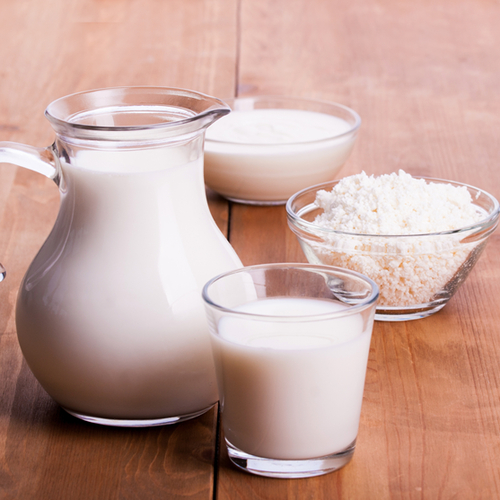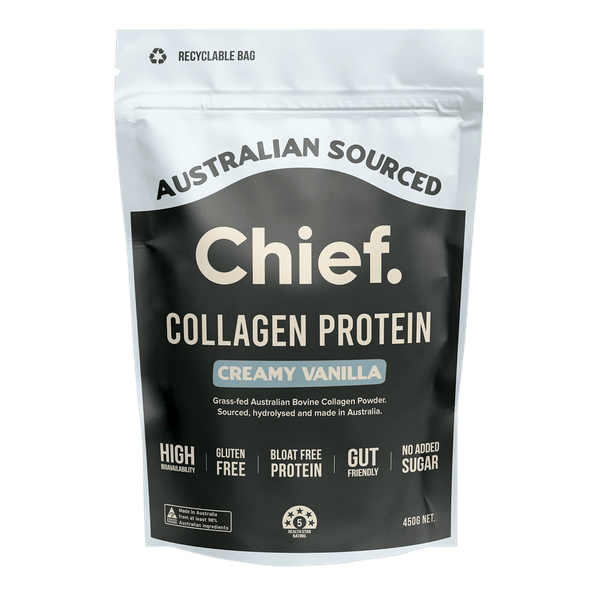
Background
Fermentation breaks down milk proteins and lactose. This benefits people with milk protein allergies and lactose intolerance. Fermentation also increases how long milk products will last on the shelf.
People use fermented milk for common cold, diarrhea from antibiotics, eczema, high blood pressure, high cholesterol, irritable bowel syndrome (IBS), and lactose intolerance. It is also used for asthma, constipation, hay fever, stomach ulcers, and many other conditions, but there is no good scientific evidence to support most of these uses.
Don't confuse fermented milk with probiotics, kefir, or yogurt. These are not the same.
Safety Safety definitions
When applied to the skin: There isn't enough reliable information to know if fermented milk is safe or what the side effects might be.
Special Precautions & Warnings:
Pregnancy and breast-feeding: Fermented milk is commonly consumed in foods. But there isn't enough reliable information to know if it is safe to use in larger amounts as medicine while pregnant or breast-feeding. Stay on the safe side and stick to food amounts.Children: Fermented milk is commonly consumed in foods. It is possibly safe when taken by mouth in larger amounts as medicine for up to 5 days.
Weakened immune system: Some fermented milk products contain live bacteria. This bacteria might grow too well in people whose immune systems are weakened. To be on the safe side, if you have a weakened immune system, talk with your healthcare provider before taking fermented milk products.
Effectiveness
- Diarrhea in people taking antibiotics (antibiotic-associated diarrhea). Drinking fermented milk might help prevent diarrhea from antibiotics.
- Eczema (atopic dermatitis). Drinking fermented milk containing multiple types of bacteria during pregnancy and just after giving birth reduces the chance of eczema developing in children.
- Common cold. Drinking fermented milk might help prevent the common cold in adults and children.
- Diarrhea. Drinking milk fermented might reduce how long diarrhea lasts in infants and children. But it's not clear if it helps prevent diarrhea in infants and children.
- A digestive tract infection that can lead to ulcers (Helicobacter pylori or H. pylori). Drinking fermented milk might reduce symptoms from H. pylori infection in adults and help clear up the infection faster in children.
- High cholesterol. Taking fermented milk might lower total and low-density lipoprotein (LDL or "bad") cholesterol in people with or without high cholesterol. It might benefit people who are overweight or obese the most.
- High blood pressure. Drinking fermented milk or taking fermented milk tablets by mouth might lower systolic (the first number) but not diastolic (the second number) blood pressure in people with high blood pressure.
- A long-term disorder of the large intestines that causes stomach pain (irritable bowel syndrome or IBS). Drinking fermented milk might reduce bloating, gas, and pain in people with IBS.
- Inability to properly digest the sugar lactose (lactose intolerance). Drinking fermented milk might reduce bloating, diarrhea, and pain in people with lactose intolerance.
- Diarrhea caused by rotavirus. Drinking fermented milk for 5 days might reduce how long diarrhea lasts in children with diarrhea caused by rotavirus.
- Asthma. Drinking fermented milk doesn't seem to reduce asthma attacks in children. Also, drinking fermented milk during and just after pregnancy doesn't seem to prevent asthma in the young child.
- Upper airway infection. Drinking fermented milk doesn't seem to prevent upper airway infections in children or people living in nursing homes.
Dosing & administration
Interactions with pharmaceuticals
Antibiotic drugs
Interaction Rating=Moderate Be cautious with this combination.
Some fermented milk products contain friendly bacteria. Antibiotics are used to reduce harmful bacteria. Taking antibiotics with fermented milk might reduce the effects of fermented milk by also reducing the friendly bacteria. To avoid this, antibiotics and fermented milk should be taken at least 2 hours apart.
Medications for high blood pressure (Antihypertensive drugs)
Interaction Rating=Moderate Be cautious with this combination.
Fermented milk might lower blood pressure. Taking fermented milk along with medications that lower blood pressure might cause blood pressure to go too low. Monitor your blood pressure closely.
Medications that decrease the immune system (Immunosuppressants)
Interaction Rating=Moderate Be cautious with this combination.
Fermented milk can increase the activity of the immune system. Some medications, such as those used after a transplant, decrease the activity of the immune system. Taking fermented milk along with these medications might decrease the effects of these medications.
Interactions with herbs & supplements
Iron: Fermented milk might increase how much iron the body absorbs. This might increase the risk of absorbing too much iron in some people.
Interactions with foods
Products
View all products- Buttermilk powder
- Hydrolysed bovine collagen peptides
- Cyamopsis tetragonoloba (Guar gum)
- Natural vanilla flavour 0.42 g
- Saccharum officinarum (Sugarcane wax alcohols)
- Luo Han Guo (fruit) ext. (Monk fruit)
- Myrciaria dubia (fruit) powder (Camu Camu)



